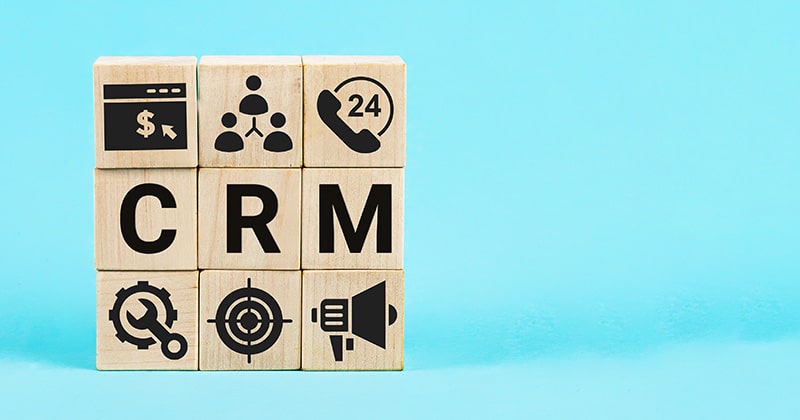You’re balancing countless tasks like project scheduling, inventory management, and customer satisfaction, along with generating new leads, can be overwhelming.
Without the right project management tools, crucial tasks might be neglected. The answer is a CRM software for home improvement professionals that streamlines operations and saves time.
Selecting the right crm for home improvement companies may seem challenging.
This guide will outline how crm tools can help manage customer relationships and your sales pipeline, enhancing customer interactions and helping to foster customer relationships.
Learn about how CRM systems benefit your remodeling business by improving efficiency and customer management.

What Is a Home Improvement CRM?
A home improvement CRM system is a tailored software designed for businesses in the home improvement industry, including contractors, renovators, and service providers focused on repairs, remodeling, or construction.
This customer relationship management tool centralizes client information, project data, and communication records, streamlining the lead generation and sales process. It enables businesses to efficiently track sales opportunities, manage ongoing projects, and follow up with existing customers. Features like marketing automation aid in achieving more profitable sales.
The best crm enhances organization and accessibility, improving the overall customer experience.
Why a CRM is Important
In the home improvement world, you meet a variety of people. Leads and customers all want different things and have different needs.
A home improvement CRM system helps you remember each person and what they’re looking for. This way, you can talk to them in a way that makes sense for their project.
In addition, CRM can help you meet changing customer service expectations.
In the future, helping and supporting customers will be “contextualized predictive, value-focused and ubiquitous,” according to Gartner’s research.
In other words, it will be all about understanding their needs and guessing what they might want next. It will make sure they get great value and be there for them everywhere, all the time. Using CRM can help home improvement businesses prepare for this future.
A home improvement CRM keeps track of all the details about customers. It can tell you what projects they’ve done previously and what they might need next. This means businesses can offer customers exactly what they want, even before they ask for it.
How CRM Helps Your Business
Here’s how a home improvement CRM can help your business succeed:
Keeping Things Organized
A home improvement CRM collects all the information you have about your customers and stores it in one place. This means you can easily find phone numbers, emails, and notes about each customer. No more lost sticky notes or forgotten emails.
Making Your Team Better
With a CRM, everyone on your team can see what’s happening with each customer. This means your sales team knows what your service team is doing. Everyone can work more collaboratively without missing details.
Saving Time
When all your customer data is in one place, you save time. You don’t have to dig through files or ask around to get the information you need. It’s all right there in the CRM. This means you can spend more time serving your customers and less time looking for their details.
Keeping Customers Happy
A CRM helps you recall every little detail about your customers. This means you can make them feel valued every time you talk to them. When customers feel valued, they’re happier. Happy customers are more likely to recommend you to their friends.
It’s all about personalization. Making things feel personal for customers helps them stick around longer. In the big picture, it increases a company’s total sales.
FROM ONE OF OUR PARTNERS: Does Your Small Business Need a CRM System? (Plus Our Top Picks!)
Understanding Home Improvement CRM
A home improvement CRM is different from other CRM systems because it has features that fit exactly what you need in home improvement.
This includes the following:
Project Estimation Tools
These features account for time, materials, and other factors in job pricing. They use data to help you estimate how much a project will cost.
Scheduling
A scheduling feature lets you plan and assign when to meet customers or start a project. It’s like having a smart calendar that helps you and your team stay organized.
Inventory Management
Keep track of all your materials and supplies. You’ll know what you have and what you need to order. This means you won’t run out of tiles or paint in the middle of a job.
Integrated Messaging
Communicate easily with your team, suppliers, and customers. Everyone can stay in the loop without having to juggle emails, texts, and phone calls.
Automated Email Campaigns
Send out emails to your customers automatically. This is great for letting them know about special deals or updates on their projects.
Analytics and Reporting
Get reports on how your business is doing. See which projects make the most money or which marketing emails get the best response.

Benefits of Using a Home Improvement CRM
Using a home improvement CRM can really help your business grow. Here’s how:
Effective Organization
With all your customers’ information in one place, you can keep track of everything. Better organization leads to time savings and improved communication, too.
Better Project Planning
Scheduling and analytics give you a better idea of exactly when you can start a new project. This helps you take on more work without getting overwhelmed.
Financial Savings
By managing your inventory well, you won’t waste money on extra materials. You’ll only buy what you need.
Simplified Communication
Easy communication means fewer mix-ups. Your team, suppliers, and customers will all know what’s happening. This keeps everyone happier.
Data-Driven Decisions
By understanding what works and what doesn’t, you can make smart choices. Maybe you’ll find that certain types of projects are more profitable. Or perhaps you’ll see that some marketing efforts do really well while others don’t.
A home improvement CRM is designed to make your life easier. It has everything you need to keep your projects, team, and materials organized.
Plus, it helps you talk to your customers in a way that makes them feel valued. With a CRM like this, your business can run smoother and grow faster.
RELATED ARTICLE: 5 Key Benefits a CRM Software Can Offer Your Sales Reps
Choosing the Right Home Improvement CRM Software
Picking the right CRM software is a big decision for your home improvement business.
Let’s discuss a few points you need to consider to make a good choice.
1. Cost
When you think about cost, remember it’s not just about how much you pay. It’s also about what you get for your money.
Some CRMs might seem expensive, but they come with many helpful tools. These tools can save you time and even money in the long run.
For example, a CRM that automatically sends marketing emails might get you more high-quality home improvement leads. This could mean more money for your business.
So, when you look at the price, think about the benefits, too. Also, check if there are any hidden costs like extra fees for more users or special features.
2. Scalability
Imagine your business is like a plant. Right now, it might be small, but it can grow bigger and stronger.
Your CRM should be like the pot your plant is in. If the pot is too small, your plant can’t grow.
You need a CRM that can handle more customers, sales, and information as your business grows.
This way, you won’t have to switch to a new CRM when your business expands. That can save you a lot of time and hassle.
3. Support
If you run into a problem, you want to be able to get help quickly. This is really important because even small problems can slow down your work.
Look for a CRM that has a friendly, helpful support team. Check if they’re easy to reach by phone, email, or live chat.
Also, see if they have good guides or tutorials. This way, you can learn how to do things independently, too.
4. Functionalities
Think about what a typical day looks like for your business. Maybe you spend a lot of time scheduling jobs for your team. Or maybe you talk to lots of customers to understand what they need.
Make a list of these tasks. Then, look for a CRM with features to make these tasks easier.
For example, if scheduling is a big part of your day, you’ll want a CRM with a good calendar tool. This tool should let you see who’s available and when with just a few clicks.
By choosing a CRM that matches your needs, you can make your workday much smoother.
5. Integration
Integration means ensuring your new CRM works well with your existing tools. So, if you use certain software for your accounting, your CRM should work with it smoothly.
Integration is crucial. It makes your work easier. When your CRM works well with other software, you don’t have to enter the same information more than once. This saves you time and keeps mistakes from happening.
For example, improveit 360 is a CRM that meets the needs of home improvement businesses. It’s customizable, so you can modify it to fit your needs. And it offers lots of options for integration.
FROM ONE OF OUR PARTNERS: The Best CRM Software Options for Home Services Businesses

Implementing Home Improvement CRM in Your Business
After choosing the right CRM, you need to use it to the best of its ability.
Let’s discuss how to get the most out of your home improvement CRM.
Train Your Team
It’s important that everyone understands how to use the CRM. Good training means your team can use all the features your CRM offers.
Some CRM systems, like improveit 360, give you special training to help you start. This makes sure you’re using the CRM in the best way.
Know Your Goals
Ask yourself, “Why are we using a CRM?”
You might want to keep better track of your projects or make your customers happier.
When you know your goals, you can use the CRM to reach them.
Think Like a Customer
Imagine you’re the customer. What kind of experience do you want to have?
Your CRM can help make your service better. For example, it can remind you to call a customer on the right day. This makes your customer feel important.
Set Data Standards
This means everyone agrees on how to put information into the CRM.
For example, always enter dates the same way. This keeps things neat and makes sure no one gets confused
Use Automation
Automation means the CRM does some tasks for you.
It can send emails to your customers or remind you about appointments. This saves you time so you can concentrate on more important work.
5 Questions to Ask When Choosing a Home Improvement CRM for Your Business
Here are some questions to help you make a smart choice:
1. What Features Do We Need?
Think about what your business really needs to improve. Do you need help scheduling jobs? Keeping track of customer info?
List the most important things you need your CRM to manage.
2. Can It Grow with Our Business?
Make sure the CRM can handle it if your business expands. You don’t want to have to find a new CRM just because you have more customers or projects.
FROM ONE OF OUR PARTNERS: 9 Home Improvement Industry Trends
3. Is It Easy for Our Team to Use?
The CRM should be easy for everyone to use, from the boss to the newest worker. If it’s too difficult or confusing, people won’t use it correctly.
4. How Well Does It Work with the Tools We Already Use?
Your new CRM should integrate seamlessly with the software you already use. Consider things like accounting software or email provider.
Integration makes your workflow more efficient. Its integration capabilities make improveit 360 an excellent choice.
5. What Kind of Support and Training Does the CRM Offer?
Find out if you can get help when you need it.
Good support and training can greatly affect how well the CRM works for your business. It can help you get the most return on your investment.
Take Action Now with These 3 Tips
Ready to get started with a CRM?
Here are three actionable tips to set your home improvement business on the path to CRM success:
1. Write Down Your Objectives.
Before diving into CRM options, take a moment to list what you want to achieve. Are you looking to improve customer communication? Do you need to streamline project scheduling or enhance lead management? Knowing your goals will guide your search for the perfect CRM.
2. Identify Key Functionalities.
Think about the tasks that eat up most of your day or the areas where mistakes happen most. Pinpointing these priorities will help you find a CRM that addresses your specific needs.
3. Evaluate Your Current Tools.
Look at the software and systems you already use, from accounting software to email marketing platforms. Make notes on the tools you need to keep. Your new CRM should integrate with these tools, making your transition smooth and your processes more efficient.

